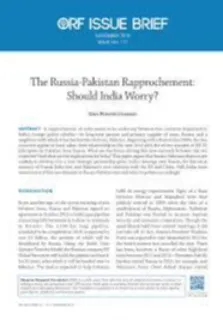Russia and Pakistan have never really had warm relations. Following Pakistan’s independence in 1947, then Prime Minister Liaqat Ali Khan was invited by both the Soviet Union and the US. He chose to visit the US, mainly because the US had 2 more capacity to help Pakistan economically.
During the Cold War, Soviet-Pakistan relations were marred not only by Pakistan’s alliance with the US being a member of both the Central Treaty Organization (CENTO) and the Southeast Asia Treaty Organization (SEATO)3but also by the China-Pakistan nexus (after the Sino-Soviet split) and by Russia’s de facto alliance with India in the 1970s. In fact, this alliance is seen as the enabler of India’s liberation of Bangladesh.
As the Cold War ended in 1990 and new opportunities for engagement emerged owing to the dramatically transformed geopolitical situation and domestic changes3Russia-Pakistan relations remained fragile and strained. In Afghanistan, while Pakistan supported the Taliban, Russia and India supported the Northern Alliance. Pakistan’s unsavoury record on nuclear proliferation also unsettled Russia and created distrust of Pakistan. Moreover, Russia was concerned about the presence of Chechen separatists and Central Asian militants in Afghanistan and Pakistan.
At the same time, with India and Russia’s special relationship continuing even after the Cold War and with Russia’s support of India’s position on Kashmir, Pakistan saw little to gain from improving ties with Russia.
The views expressed above belong to the author(s). ORF research and analyses now available on Telegram! Click here to access our curated content — blogs, longforms and interviews.

 PDF Download
PDF Download



 PREV
PREV


